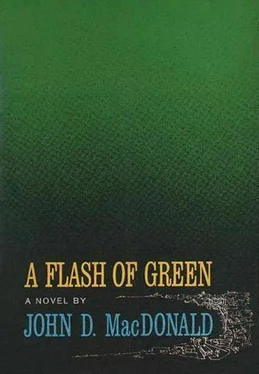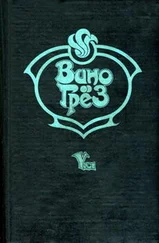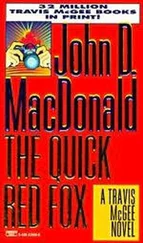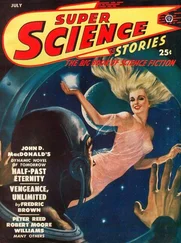“A plague?”
“I watch the cycles in the bay. For a few years everything will be favorable for certain species. It will become very numerous. It will dwindle the numbers of the other animals who share the same space, eat the same food. Then there will be too many of them. The climatic factors will change. The huge numbers will be reduced. The other species will come back. In this split second of time in which we are living, things have been too favorable for man. With science he has suppressed too many natural enemies. He is too numerous. He is poisoning the air and waters of the earth. He is breeding beyond reason. He is devouring the earth and the other creatures thereon. But it will come to an end, of course. Man has a longer cycle than do the small creatures. Geometric growth is insupportable. During this growth cycle it is the business of thinking people to protect and conserve the other forms of life, so when the cycle is reversed, the ecology will not be too badly distorted. A hundred generations from now, that bay might be supplying food for a mainland village just as it did thirty generations ago.”
“That’s a point of view so... so broad it takes my breath away.”
“It’s a scientific point of view, Mr. Wing.”
“That would mean you anticipate a defeat of... civilization, of everything we stand for?”
“My dear Mr. Wing, the only victory is existence, and the only defeat is extermination. When a species cannot survive, it is defeated. We must keep mankind from making the planet unsuitable for existence without technology. In the criminal campaign against fire ants in this country, the poisoners have slain an estimated five thousand tons of small birds. Tons , Mr. Wing. Thirty to forty million in specific areas. Believe me, I am not snuffling over what happened to the dear, dear little songbirds. This is not a situation where sentimentality is applicable. This was nonselective elimination, taking the healthy and sick, the predators and sapsuckers, destroying not only that generation but all possible subsequent ones from that conglomerate of basic strains. It is a thoughtless ecological abomination, Mr. Wing. It is like rubbing out one factor in a vastly complex equation. Due to the interrelationship of bird life, insect life and plant fertilization, the known characteristics of that area will change. To what? We do not know. We only know it will be different. I recognize a deity of interrelationships, of checks and balances and dependencies. Acts such as this are like spitting in the face of God. It is a dangerous temerity, Mr. Wing. It is, in its essence, stupidity, nonknowing, the most precarious condition of man. Filling this bay is a part of the same pattern of throwing away everything you do not understand.”
“I can see that you have some very... strong opinions.”
“I concern myself with facts, not opinions.”
“You seem to be able to get some very noted scientists to come down here and speak out in favor of leaving the bay alone.”
She shrugged. “They understand these things. I conduct a large correspondence. I help field crews when I can. They give me little research tasks. There is a little money sometimes. It helps.”
“Where did you get your training, Mrs. Rowell?”
“I read. I study. I work. I think. I observe.”
“You call yourself a layman. I assume that means you have no formal training in these fields of knowledge.”
“That is the definition of the term, is it not?”
“That bothers me a little, how a layman can acquire such an objective viewpoint. Maybe some of your basic premises are wrong. How could you be able to tell?”
Her thick brown face turned pale, particularly around the mouth. “You are insolent, Mr. Wing. You should have more respect!”
“For what? Because you dabble in science?”
“Dabble! I had my doctorate before you...”
“You have a degree?”
Her agitation disappeared quickly. “Forgive me. It is just a manner of speaking. I have awarded myself various degrees, as a game, a joke.”
“I see. I’ve often wondered about that slight accent you have, Mrs. Rowell.”
“I have given you three minutes more than I promised. Please telephone me the next time to find out if I am busy.”
“But you are always busy, aren’t you?”
“Extremely.”
She glanced back to the shed and disappeared into it without a backward glance or word of parting. He got into the car and headed thoughtfully back toward the city. There was something invincibly professorial about Mrs. Doris Rowell, something of the attitude of the professional lecturer, plus the austere philosophy of the trained scientist. He had heard no gossip about her, no rumors. She was thought of as merely a very strange and rather difficult woman. For the first time he had begun to wonder where she had come from.
When he had done a series of features on Palm County history, one of his more reliable sources for the Sandy Key area had been Aunt Middy Britt. She lived with one of her sons, a man of sixty, next door to the old Britt fishhouse on the mainland just below the Hoyt Marina. It was still the finest place in the area to buy smoked mullet.
Aunt Middy was dozing in her rocking chair on the shady old screened porch. He looked through the screen at her and coughed. Her eyes opened quickly and she began to rock. “Blessed Jesus, I tole you every last thing I know, and some that I didn’t. But come in anyway, Jimmy, and set. Pretty sunset coming acrosst the bay now, isn’t it?”
He sat with her and talked for a little while and finally said, “What about that Mrs. Doris Rowell, Aunt Middy?”
“Oh, her in the Faskett place way down the key? It set empty eight year ’fore she bought it. No history in her, boy. She’s a come-lately. Nineteen and forty it was. These sorry teeth are getting loose on me again.”
“Where did she come from?”
“Someplace north, where they all come from. Way it looks around here, it must be getting mighty empty up there. I wouldn’t have no idea what special place it was she come from.”
“Didn’t people wonder about her when she first came down, a woman all alone?”
“Guess they did. Let me take myself back now. She wasn’t too bad of a looking woman when she came down. There was talk she was a widow woman. Wasn’t friendly. Nobody seen much of her the first year. Stayed in that house. Must have spent her time eating. Every time you’d see her, she was bigger. End of a year she was the size of a house. Then she was busying herself with plants and bugs and fishes, and the first hell she started to raise was on account of the size mesh in the nets around here, and she’s been raising hell about all that kind of stuff ever since.”
“But you’ve no idea why she came here, or what she used to do?”
“Jimmy, it’s hard to keep up any interest in somebody strictly minds her own business most of the time. Smart woman, I guess. When the snooks got sick in the creeks that time, all rusty red around the gills and hundreds of big ones dying, she was the one traced it down. The Florida State folks took the credit, but Miz Rowell was the one actual found out. Forty-six, it was, back when snooks was a good money fish before the damn fools named it a game fish.”
“Would anybody know any more about her than you do?”
“There’s people know more about everything in the world than I do. I kept telling you that when you were writing up all the old settlers. Let me think, now. There was somebody around here knowed her before she came down. Or knew about her or something. Used to go visit with her, I think. Now who was that? Memory’s as loose as my sorry teeth, boy. Hmmm. Wait now! Ernie Willihan, it was. He was fresh out of college, teaching in the high school. Ernie would be in his forties now. Aida Willihan’s boy. She’s dead now, God rest her sweet soul. She raised that boy single-handed, and did her best by him. Sent him to school way up north someplace, Minnesota, I think it was. Of course he got a scholarship and he worked too, but Aida had to do a lot of scratching, then didn’t live long enough to see him hardly started in life. Never saw a grandchild. And a wicked old woman like me gets to see a full dozen of her grandchildren’s children so far and’ll probably see more. You must know Ernie Willihan, Jimmy.”
Читать дальше










![Джон Макдональд - Wine of the Dreamers [= Planet of the Dreamers]](/books/430039/dzhon-makdonald-wine-of-the-dreamers-planet-of-thumb.webp)

